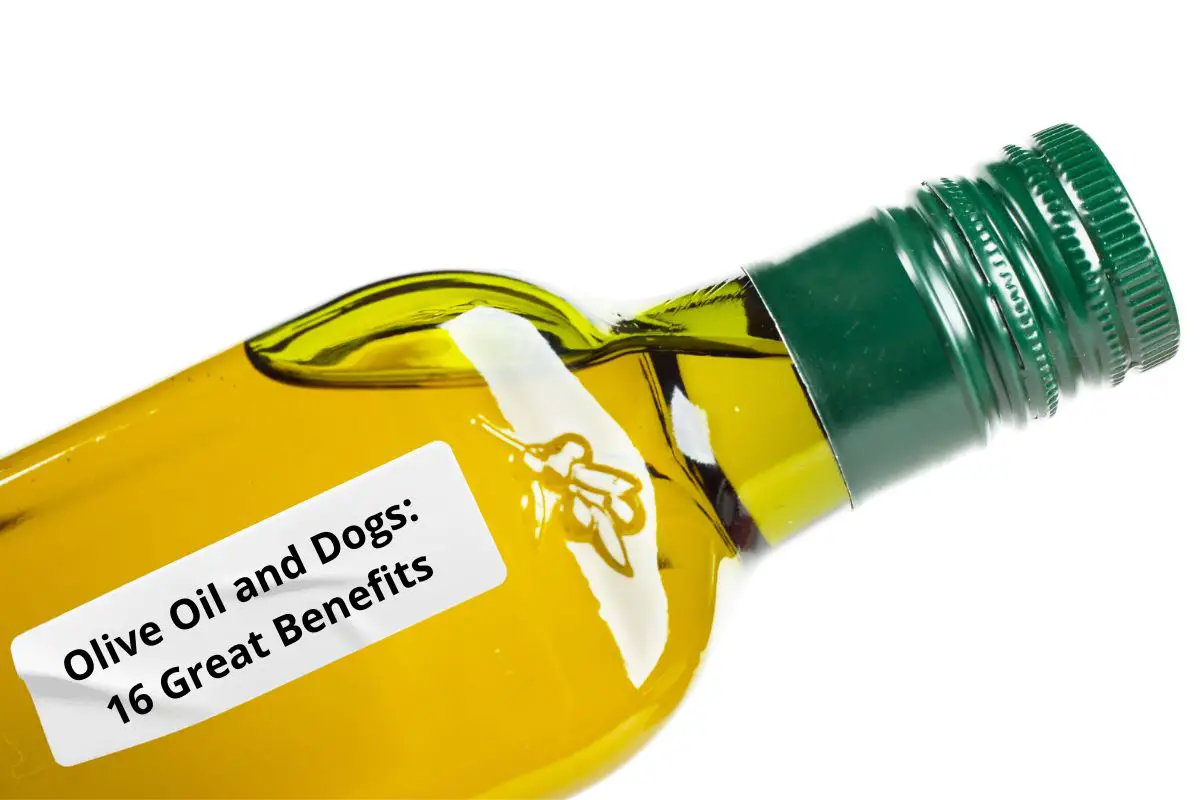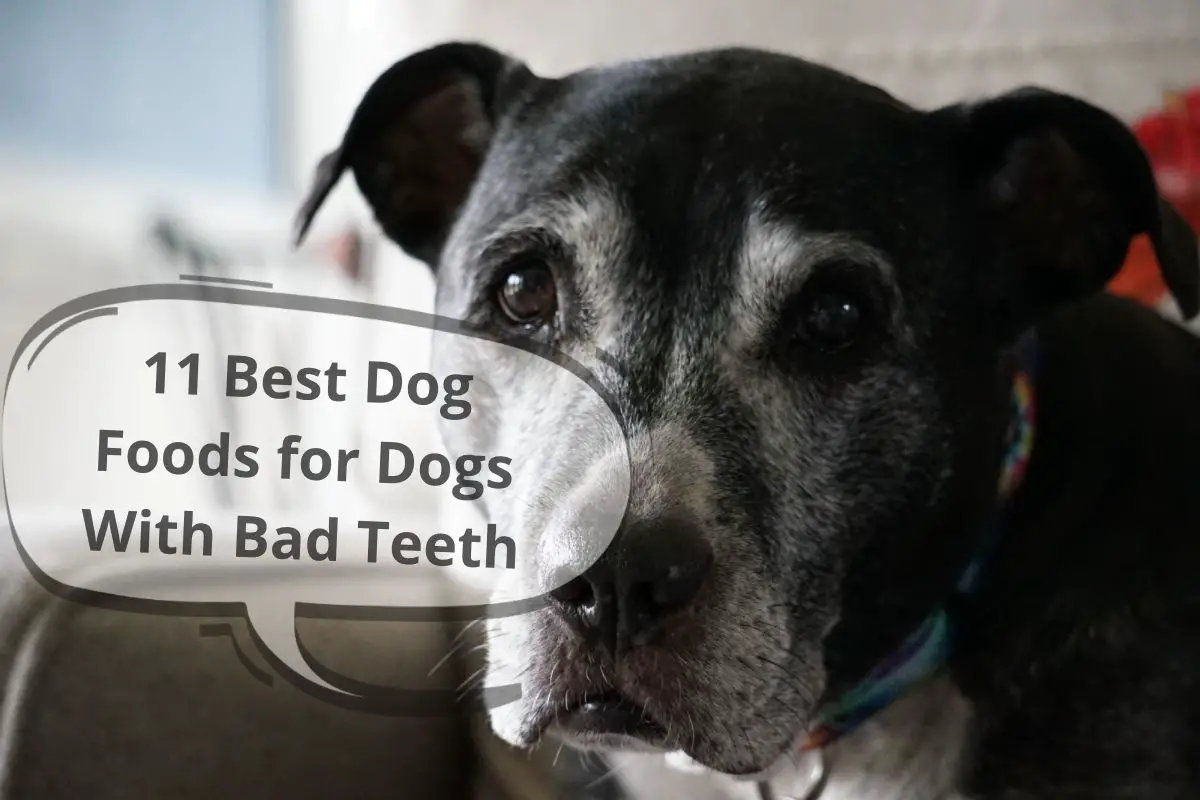This post contains affiliate links.
Finding the right dog food for your furry companion is important to keep them happy and healthy, but this isn’t always as simple as it may seem. With ingredients like choline chloride, dried Lactobacillus acidophilus fermentation product, and iron proteinate, it’s easy to get lost when looking for a healthy choice for your dog. Another ingredient that most people are unfamiliar with but has made its way into many dog foods on the market is Yucca Schidigera.
Yucca Schidigera–or specifically its extract–in dog food is an ingredient used to reduce the odor associated with dog waste. A plant native to Mexico and, in recent years, the U.S., more and more dog food brands have begun adding Yucca Schidigera to their recipes for this deodorizing effect.
In this article, we will take a look at this interesting plant and its traditional uses as well as the scientific research that led to the widespread incorporation of Yucca Schidigera into a variety of different dog foods. We will also look at the process that manufacturers use to produce the extract and examine some of the brands that incorporate this plant into their recipes to see if there is any real-world evidence of the benefits of this Yucca Schidigera in dog food.
Table of Contents
Traditional Uses
Yucca Schidigera is a member of the lily family native to the Southwest United States and Mexico. It has a long history of medicinal use by native populations of the area and has been a natural remedy for everything from arthritis to headaches.
It has also been used as a deodorizer and as a natural soap product. Special chemical compounds called saponins create a froth when agitated, which led to Yucca Schidigera’s traditional use as a natural detergent. Those same compounds are also responsible for some of the other interesting effects of Yucca Schidigera, but more on that later.
In more recent years, the serious scientific study of the plant has led to its use in both human and animal products for various purposes.
Uses in Dog Food
While the varied uses of Yucca Schidigera make it a fascinating subject for several reasons, in the world of dog food, it is primarily used as a way to reduce the odor of your dog’s waste. Every dog owner has to deal with their companion’s waste and the associated odors, and proper disposal–cleaning up after your dog–is mandatory in many places.
This means that reducing the foul smells of your dog’s waste is a characteristic of dog food that just about every dog owner would be happy to pay for.
To get an understanding of how dog food brands began incorporating this fascinating plant into their recipes, let’s take a look at some of the research that led to this revelation.
Reduces Flatulence
In a series of experiments conducted by the Waltham Center for Pet Nutrition, a team tested the viability of three substances as a means to reduce flatulence and the accompanying malodor in dogs.
Activated charcoal, Yucca Schidigera, and zinc acetate were all incorporated into treats–both individually and in combination–that were subsequently fed to 8 dogs 30 minutes after they finished their meals. None of the agents were determined to reduce the occurrence of flatulence; however, they all affected the odiferous nature of these episodes.
When used individually, activated charcoal, Yucca Schidigera, and zinc acetate reduced the amount of hydrogen sulfide–a chief cause of foul-smelling flatulence along with ammonia–by 71%, 38%, and 58%, respectively. However, when combined into a single treat, “flatulence episodes with bad or unbearable odor” were reduced by 86%.
Those are figures every dog owner can appreciate.
Reduces Foul Smell in Dog Waste
Another study, conducted by Lowe and Kershaw, used a controlled process to test whether or not Yucca Schidigera was able to reduce the malodorous nature of dog and cat waste. Instead of using an instrument to test the levels of hydrogen sulfide in animal waste, these researchers took a more old school approach.
Lowe and Kershaw fed a control group of dogs a diet without Yucca Schidigera for a period and collected the waste for later examination. Afterward, the dogs were fed a diet that contained Yucca Schidigera for 21 days and at the end of this trial, their waste was once again collected and stored.
The samples were then given to three panelists (quite the job) to rank the level of malodor on a scale of 1-5, with 5 being the most foul-smelling. The panelists ranked the results of the control diet without Yucca Schidigera as 5 and the results of the test diet that contained Yucca Schidigera at 2.3.
Once again, evidence for the effectiveness of the substance in reducing foul smells in dog waste makes a strong case for including Yucca Schidigera in dog food.
Helps Absorb Minerals in Their Diet
One study focused on the possibility of Yucca Schidigera as a dog food supplement with other benefits besides reducing waste odors. Conducted in conjunction with the University of Sao Paulo, this experiment aimed to examine the relationship between Yucca Schidigera and a dog’s ability to absorb the minerals contained in its diet.
The initial query arose from the investigators’ awareness that there had been multiple studies regarding Yucca Schidigera’s viability as an additive in dog food that could reduce malodorous flatulence, but very few on any other potential benefits of this substance.
They theorized that the same qualities of Yucca Schidigera that led to the reduction of foul smells in dog waste–i.e., the substance’s effect on particular digestive enzymes in the dog’s gut–could have other beneficial impacts on the animal’s digestion.
Through a series of controlled trials, the team produced results that suggested the addition of Yucca Schidigera to low-quality feed was able to improve the absorption of calcium, phosphorus, and magnesium.
Their research suggests that beyond just reducing the foul smells of your dog’s waste, a diet that includes Yucca Schidigera may help your animal more fully absorb the minerals that can improve their overall health.
Reduces Fat Absorption
Another study conducted by a team out of Brazil also looked into the potential benefits of incorporating Yucca Schidigera into a dog’s diet. However, this experiment yielded different results than the previous studies we’ve looked at.
Using a control group of dogs, researchers examined the effects of Yucca Schidigera on the “absorption of dietary coefficients” in dogs. This term can be thought of as the nutrients absorbed during digestion, although this is not quite a perfect comparison.
While the addition of Yucca Schidigera to the test subjects’ diet didn’t lead to any substantial reduction or increase in the absorption of the majority of their diet’s nutritional content, there was a measurable reduction in the amount of fat that the animals absorbed.
According to the study:
“…the digestibility of fat was reduced with the inclusion of Yucca schidigera extract in the diet. Thus, the composition of essential fatty acids in low-fat diets that include Yucca schidigera must be considered in order to ensure that nutritional deficiencies do not occur.”
The researchers did not elaborate on potential levels of Yucca Schidigera in a diet that could lead to a problem for your dog, only that there was a measurable difference between the control and test subjects’ ability to absorb these valuable fats.
This is an interesting revelation that, depending on the levels of Yucca Schidigera in a recipe, should be of interest. Dogs require high levels of fat in their diet, especially active dogs that expend a lot of energy daily.
Active Chemicals in Yucca Schidigera
With all of this research, it is little surprise that so many dog food brands have started incorporating this natural substance into their recipes, but how does this plant cause these changes in your dog’s gut?
Steroidal Saponins
Most scientists agree that the majority of the beneficial effects of Yucca Schidigera in dog digestion occur thanks to a group of phytochemicals called steroidal saponins. While the effects of these interesting molecules are not limited to gastric issues (more on that later), the anti-protozoal nature of steroidal saponins can have serious implications regarding the gut health of dogs.
Through a cellular process, the saponins found in Yucca Schidigera have been shown to be useful treatments for protozoal diseases, equally as effective as the medication metronidazole in its use against Giardia Lamblia.
It is these compounds that interact in your dog’s gut to reduce the foul odors of waste and potentially combat the negative effects of protozoal diseases in the gastrointestinal tract.
Some scientists also theorize that the anti-protozoal nature of the steroidal saponins present in Yucca Schidigera may have other benefits that are less conspicuous.
Yucca Schidigera and Arthritis
Studies have shown that certain protozoans found in the intestine have also been observed in the joints of subjects suffering from arthritis. The successful use of metronidazole as a treatment for arthritis has interesting implications for Yucca Shideraga’s saponins, given their similar performance in combating the same protozoa.
The correlation between protozoal activity and arthritis has been documented, although scientists remain unclear about the specific functions behind this interaction:
“Despite the almost universal clinical observation that inflammation of the gut is frequently associated with inflammation of the joints and vice-versa, the nature of the relationship remains elusive.” — L. Cordain.
Yucca Schidigera is also rich in other physiologically active compounds, with polyphenolics being of specific interest to researchers. Resveratrol, which is also found in red wine and has a documented anti-inflammatory effect, as well as compounds called yuccoals, are both present in this plant.
Nitric oxide is an inflammatory agent produced in the body found in increased quantities in tissues that are undergoing an event of inflammation. Both resveratrol and yuccoals A, B, and C have been shown to block the particular process that produces nitric oxide resulting in inflammation.
So even though we are not entirely clear on why it works, there is a strong amount of anecdotal evidence showing the potential benefits of Yucca Shidigera’s steroidal saponins in treating arthritis. The effects of the polyphenolics contained in Yucca Schidigera may also play a part in the plant’s role as a treatment for arthritis in dogs as well as humans.
Because of this correlation, many dog food brands list improved joint health as an additional benefit of including Yucca Schidigera in their recipes.
Extraction Process and Saponin Content
While there isn’t any single extraction process necessary to extract the concentrated saponins that provide the benefits of Yucca Schidigera, the most common approach is a mechanical extraction process.
In this scenario, the plant material–in the case of Yucca Schidigera, usually, the bark is used–is harvested and the organic material is ground into a powder. This powder is then compressed and a liquid is extracted, resulting in a granulated byproduct.
In most cases, this liquid has a much higher concentration of the active steroidal saponins than the byproduct and is utilized for human consumption or cosmetics. The resulting solid product, known as bagasse, is then incorporated into animal feed, including in your dog’s food.
Potential Issues
There are issues that become apparent when looking at this extraction process compared to the studies we have discussed.
The scientific studies we referenced were all conducted in the meticulous and controlled conditions characteristic of the academic environment. The researchers were dealing with specific amounts of Yucca Schidigera plant material, that in many cases, had been previously tested for their steroidal saponin content, which was then added to dog food. This makes sense when trying to isolate the effects of a compound in a biological system (a dog).
This is in direct contrast to the lack of oversight regarding saponin content in dog food. Pet foods are not held to the same standards as producers of foods intended for human consumption and very little information is provided by these brands regarding the specific saponin content or even how much Yucca Schidigera plant material is used in their recipes.
This means that while the scientific evidence for the benefits of Yucca Schidigera on your dog’s gastric health is real, whether a specific brand of dog food that lists this plant as an ingredient contains enough to make a difference is another matter.
To truly determine the ability of a specific dog food brand to reduce the foul odors of a dog’s flatulence, similar experiments to the ones we examined would need to be conducted with the dog food in question. So far, such a study has not been published.
A Note on Dog Food Ingredients
Just like the labels on the food you buy for yourself, pet foods are subject to rules regarding how they present themselves to the consumer. Like on food meant for human consumption, the producers of dog food often use clever and specific language to push the limits of these rules.
For example, the “95%” rule states that for a recipe dog food to be labeled “Beef for Dogs,” then 95% of the product must be actual beef. Manufacturers get around this distinction by adding qualifiers that skirt the rule. The “25%” or “dinner” rule states that a modifier can be added to the name if a recipe contains 25% or more of an ingredient. “Beef Dinner for Dogs,” “Chicken Entree,” and “Salmon Formula” are all examples of pet food producers utilizing this loophole.
Similar semantic workarounds are used for the addition of meager portions of other ingredients. If a dog food recipe contains 3% of an ingredient, it is subject to the “with” rule. This means that a “Chicken Dinner with Beef” recipe would only need to contain 25% chicken and 3% beef.
The dilution of ingredients is taken even further with the practice of adding “digests” or processed concentrates to give the food specific flavors. A “Beef Flavored” dog food may not actually contain any beef, gaining the flavor of meat from protein concentrates that were produced in an industrial process.
The order of ingredients listed on dog food is determined by weight, so the first ingredients listed are the most prevalent in the recipe, and the last ingredient is the scarcest. When a recipe has 70 different ingredients, there may only be minute amounts of the last substances listed. This is why there is such a push for “limited ingredient” dog foods from concerned owners.
Top Dog Foods Containing Yucca Schidigera
Now that we understand a bit of the science behind this plant and how it can reduce the foul odors associated with dog waste, as well as the way manufacturers list ingredients, let’s take a look at some brands of dog food that contain Yucca Schidigera. To get a sense of whether or not Yucca Schidigera had a significant impact on the gastric health or foul odors of dog waste, I dug into the reviews for each of these dog food recipes.
Kirkland Nature’s Domain Salmon Meal and Sweet Potato
This is a grain-free dog food that is sold at Costco as well as online retailers like Amazon. Yucca Schidigera is listed in the ingredients; however, it is not particularly high on the list, sitting at the #17 spot. How much of the extract is contained within this dog food is unclear. However, at least one review on Amazon said that since switching to this recipe, their dog “doesn’t stink,” so the Yucca Schidiger content is sufficient enough to have a positive effect.
Taste of the Wild Pacific Stream
Here is another grain-free dog food recipe that lists Yucca Schidigera as an ingredient; however, they list “Yucca Schidigera extract” explicitly. It is also somewhat low on the ingredient list, coming in at #20. Reviews range from 5-star comments about how much their dog loves the recipe to claims that this brand has made their dog sick and they will never buy it again. However, no reviews mention a reduction in flatulence or foul odors.
PerformaDog Turkey Grain-Free
Based in Australia, this is a dog food brand that proudly places its use of Yucca Schidigera in all of their recipes on their website. However, when listing the ingredients for this recipe, Yucca Schidigera seems to be more of a side note than a key component in this dog food: “Also contains natural flavors and Yucca Schidigera extract…”
However, poring over the reviews on their website, there are a surprising number of testimonials that mention improved gastric health of dogs after switching to PerformaDog food. None specifically discusses the reduction of foul odors, but many mention improved regularity and consistency of stools. Whether this is a result of yucca Shidigera content in the recipe is unclear.
Wellness Core Large Breed Grain-Free
This dog food is billed as a healthy alternative to other brands that use grain as a key ingredient. While Yucca Schidigera is listed as an ingredient, it is even lower on the list than other recipes we have looked at. Ranked #48 on a long list of ingredients, the amount of Yucca Schidigera extract that is actually in this dog food is not specified. Digging into the reviews did not reveal any mention of gastric benefits regarding odor or otherwise.
Diamond Naturals Premium Large Breed Dog Food Chicken & Rice
Diamond Naturals lists Yucca Schidigera extract in the ingredients of their Large Breed Chicken & Rice Formula food. However, it comes in at #34 out of over 60 ingredients, calling into question just how much of this substance is actually in the food. While there weren’t any reviews that spoke directly to the odor-reducing effects of Yucca Schidigera, there were a couple that mentioned improved joint flexibility in dogs that suffer from arthritis.
Whether this is a result of the anti-protozoal effects of the Yucca Schidigera extract, other ingredients, or is simply a coincidence is unclear.
Blue Buffalo Wilderness Protein Adult Dry Dog Food
This is a dog food recipe that also has Yucca Schidigera extract listed way down on the ingredients. Coming in at #38 on the ingredient list, the amount of extract in this recipe remains unclear. None of the dozens of reviews I read mentioned anything of gastric health or reduced waste odor, so it can be assumed the effect was negligible.
Muenster Perfect Balance Chicken Meal & Pork Meal with Ancient Grains
This dog food recipe lists Yucca Schidigera higher than some of the other recipes we’ve looked at, with plant extract being the 21st ingredient. Interestingly, there are several reviews left by dog owners on their website that explicitly mention improved gastric health and reduced odor of their pets after switching to this brand.
One happy customer said that her dogs’ “poo couldn’t be better!”
Another dog owner said that her pets “seem not to have that doggie odor anymore.”
While one example doesn’t necessarily make the rule, it may be the case that the producers of this high-quality dog food brand take the time to source quality Yucca Schidigera extract and include it in levels high enough that the benefits of the substance are present.
Lack of Specific Research
As we have seen, there is a growing mountain of evidence produced by a global network of scientists that suggests there are real benefits of including Yucca Schidigera in your dog’s diet. However, the problem lies in the ambiguous ways that dog food brands are allowed to label their products.
Is the Yucca Schidigera extract that is listed on your high-quality dog food present in levels high enough to have any real effect on your pet? We just don’t know. Given the precedent that has been set in the dog food industry of using clever language to produce half-truths that skirt labeling laws, it is far from a sure thing.
The quality of the extract and its saponin content are also variables that are never addressed by pet food manufacturers and have major influences on the ability of the substance to perform as expected. By examining the mechanical extraction process, we learned most of the extract that contains the active compounds is selected for human use, leaving a low-quality byproduct that may have negligible levels of the important molecules.
As we discussed earlier, the only way to determine if Yucca Schidigera is present in a dog food recipe in sufficient levels to see the plant’s benefits would be to do experiments. By taking the time and using a careful methodology, a dog food recipe could be determined to reduce malodorous flatulence. Until then, we’ll never know.
Final Thoughts
When most people see Yucca Schidigera listed on their dog’s food, they either have no clue what it is or recoil in horror, remembering that article they read about how toxic yucca is for dogs. However, with a bit of research, your worries can be put to rest.
Whether feeding your dog a recipe containing Yucca Schidigera will lead to a less smelly pooch or the plant is just another buzzword ingredient that has everyone talking is irrelevant. The substance is perfectly safe for your pet and with all the science to back it up, a little bit of Yucca Schidigera certainly can’t hurt.
Sources
- U.S. National Library of Medicine: Anti-Inflammatory and Anti-Arthritic Effects of Yucca Schidigera: A Review
- American Veterinary Medical Association: Administration of Charcoal, Yucca Schidigera, and Zinc Acetate to Reduce Malodorous Flatulence in Dogs
- National Library of Medicine: The Ameliorating Effect of Yucca Schidigera Extract on Canine and Feline Faecal Aroma
- Scielo: Inclusion of Yucca Schidigera and Zeolite in Dog Feed: Influence on Mineral Excretion
- Scielo: Inclusion of Yucca Schidigera Extract and Zeolite in the Diet and its Relationship to the Apparent Digestibility of Nutrients and Urinary pH in Adult Dogs
- Wikipedia: Metronidazole
- Science Direct: Studies on the Use of Yucca Schidigera to Control Giardiosis
- Science Direct: NÆGLERIA IN RHEUMATOID AND MALIGNANT DISEASE
- National Library of Public Medicine: Modulation of Immune Function by Dietary Lectins in Rheumatoid Arthritis
- Journal of Inflammation: Anti-Inflammatory and Anti-Arthritic Effects of Yucca Schidigera: A Review
- Wikipedia: Bagasse
- U.S. Food and Drug Administration: Pet Food Labels – General
- Costco Wholesale: Kirkland’s Signature Nature’s Domain Salmon Meal & Sweet Potato Dog Food
- Amazon: Customer Review
- Amazon: Taste of the Wild Pacific Stream
- PerformaDog: PerformaDog Turkey Grain-Free
- PerformaDog: Testimonials
- Amazon: Wellness Core Natural Grain-Free Dry Dog Food
- Amazon: Diamond Naturals Large Breed Formulas Dry Dog Food
- Amazon: Blue Buffalo Wilderness High Protein Dry Dog Food
- Muenster: Perfect Balance Chicken Meal & Pork Meal Recipe With Ancient Grains
- Pet Poison Helpline: Yucca is Toxic to Plants
Mrdogfood.com is a participant in the Amazon Services LLC Associates Program, an affiliate advertising program designed to provide a means for sites to earn advertising fees by advertising and linking to Amazon.com. We also participate in other affiliate programs which compensate us for referring traffic.




